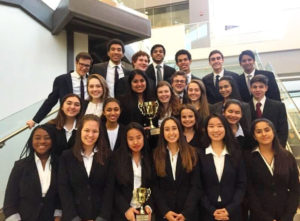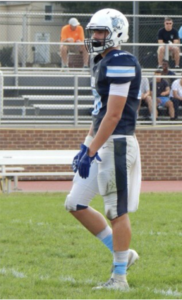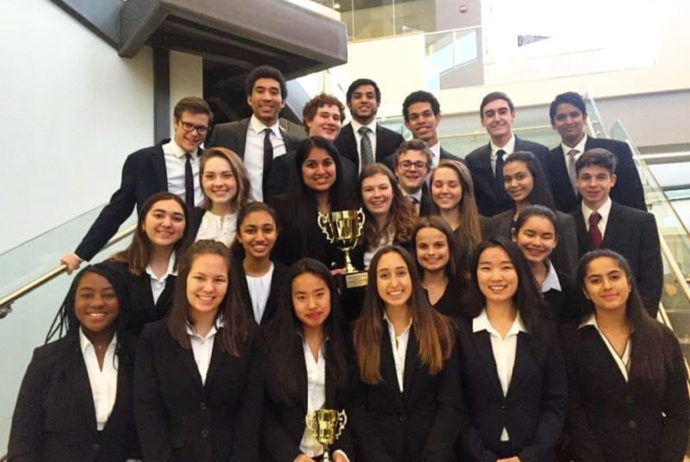
The Blue and White Team are pictured here after the closing ceremonies of the LaSalle University Invitational.
By Shailee Desai ’21
On January 21, students of the Wyoming Seminary Mock Trial team returned to Sem after competing in their second preseason competition of the year.
After weeks of preparation, the team traveled to LaSalle University’s Blue and Gold Invitational and UPenn’s Ben Franklin Invitational. It was the first time Sem Mock Trial competed with three teams at LaSalle and two at UPenn.
At LaSalle’s invitational, Sem Mock Trial’s Blue Team placed first, with a perfect record of 8-0, the White Team B team placed 4th, with a record of 7-1, and the White Team C held a winning record of 5-3. At UPenn’s Iinvitational, the Blue Team finished in first place, with a record of 8-0 (leaving them with a 16-0 record for the preseason), and the White Team B had a winning record of 5-3. This was the first time that Sem Mock Trial won two preseason tournaments in the same year. Additionally, Molly Leahy won two Top Witness awards, and Meghna Melkote received a Top Attorney award.
After two weekends of winning, the team remains dedicated, considering the next stop is advancing to the state competition. “Nothing has changed,” said Phil Ouellette. “We still have to practice consistently and work hard. Our material and performance can always be better and will continue to get better.” Morgan Price credits this dedication for their performance over the weekend. She says, “The feeling when all that hard work pays off is one you can’t describe. I’m just so proud of everyone and can’t wait for the next step in our journey.”


